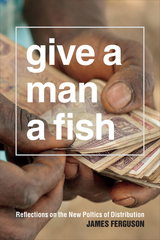
Twelve renowned scientists and theologians offer penetrating insights into the evolution dialogue in The Deep Structure of Biology. Each considers whether the orthodox evolution model is sufficient and offers their perspective on evolution and biology. Essays include:
- Chance and Necessity in Evolution
- Green Plants as Intelligent Organisms
- Canny Corvoids and Political Primates: A Case for Convergent Evolution in Intelligence
- Social and Cultural Evolution in the Ocean: Convergences and Contrasts with Terrestrial Systems
- Purpose in Nature: On the Possibility of a Theology of Evolution
Editor Simon Conway Morris provides the introduction, an overview of the issues, and an essay on evolution and convergence. Other contributors are Richard Lenski, George McGhee, Karl Niklas, Anthony Trewavas, Nigel Franks, Nicola Clayton, Nathan Emery, HalWhitehead, Robert Foley, Michael Ruse, Celia Deane-Drummond, and John Haught.
The discussion of biology and evolution in these essays broadens the scope of the traditional evolution discussion as it aims to stimulate the development of other research programs. Scholars in the science and religion field will find this book a valuable resource.

Learning how to give and receive feedback is fundamental to the development of every student and professional. Yet few of us are ever taught anything like “feedback skills.”
This book, which is the first in the Feedback Loops series, is designed to change that. Here is what students who have taken the University of Michigan Law School course on which the series is based have said about it:
-
“One of the most memorable and useful classes I have taken in law school!”
-
“Excellent, full stop.”
-
“This class was always a fun highlight of my week.”


Give and Take offers a new history of government in Tokugawa Japan (1600–1868), one that focuses on ordinary subjects: merchants, artisans, villagers, and people at the margins of society such as outcastes and itinerant entertainers. Most of these individuals are now forgotten and do not feature in general histories except as bystanders, protestors, or subjects of exploitation. Yet despite their subordinate status, they actively participated in the Tokugawa polity because the state was built on the principle of reciprocity between privilege-granting rulers and duty-performing status groups. All subjects were part of these local, self-governing associations whose members shared the same occupation. Tokugawa rulers imposed duties on each group and invested them with privileges, ranging from occupational monopolies and tax exemptions to external status markers. Such reciprocal exchanges created permanent ties between rulers and specific groups of subjects that could serve as conduits for future interactions.
This book is the first to explore how high and low people negotiated and collaborated with each other in the context of these relationships. It takes up the case of one domain—Ōno in central Japan—to investigate the interactions between the collective bodies in domain society as they addressed the problem of poverty.

Give and Take offers a new history of government in Tokugawa Japan (1600–1868), one that focuses on ordinary subjects: merchants, artisans, villagers, and people at the margins of society such as outcastes and itinerant entertainers. Most of these individuals are now forgotten and do not feature in general histories except as bystanders, protesters, or subjects of exploitation. Yet despite their subordinate status, they actively participated in the Tokugawa polity because the state was built on the principle of reciprocity between privilege-granting rulers and duty-performing status groups. All subjects were part of these local, self-governing associations whose members shared the same occupation. Tokugawa rulers imposed duties on each group and invested them with privileges, ranging from occupational monopolies and tax exemptions to external status markers. Such reciprocal exchanges created permanent ties between rulers and specific groups of subjects that could serve as conduits for future interactions.
This book is the first to explore how high and low people negotiated and collaborated with each other in the context of these relationships. It takes up the case of one domain—Ōno in central Japan—to investigate the interactions between the collective bodies in domain society as they addressed the problem of poverty.
READERS
Browse our collection.
PUBLISHERS
See BiblioVault's publisher services.
STUDENT SERVICES
Files for college accessibility offices.
UChicago Accessibility Resources
home | accessibility | search | about | contact us
BiblioVault ® 2001 - 2024
The University of Chicago Press









